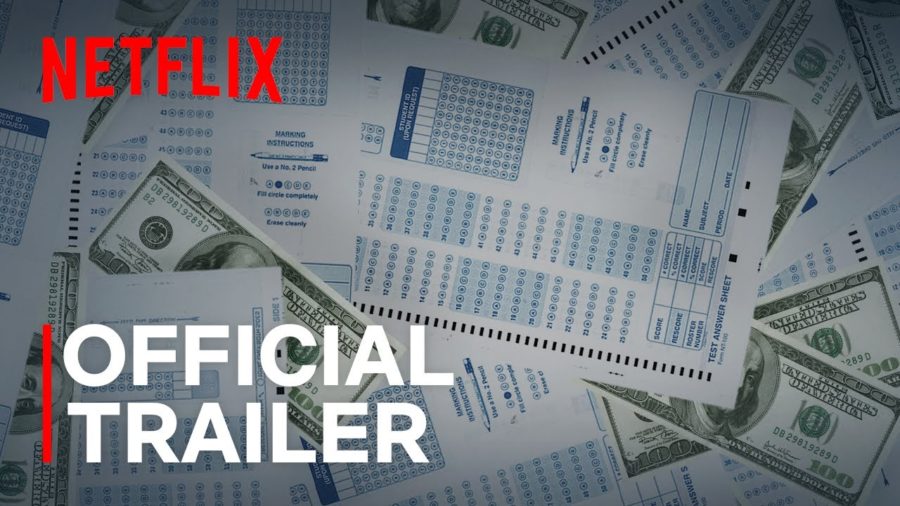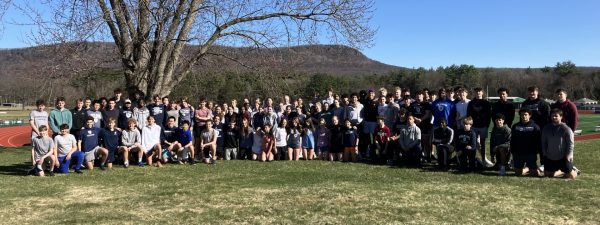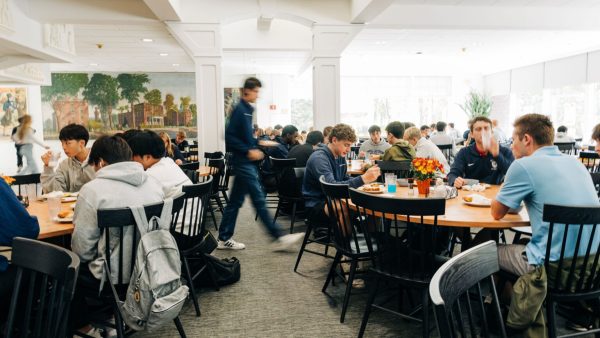New Netflix Documentary Pulls the Curtain on College Admission Scandal
As seniors sit on the edge of their seats waiting for college decisions, a new documentary on Netflix called “Operation Varsity Blues: The College Admission Scandal” is bringing attention to the unfair college advantages of wealthy families.
Due to Covid these past two years, virtually all colleges announced that they were test-optional. This resulted in a significantly more amount of applicants applying to prestigious schools like the Ivies, Stanford, USC, and UCLA. Wealthy families would do anything to get their child into these schools including being fake college recruits and cheating on standardized exams.
In the documentary, Rick Singer is the main mastermind behind getting wealthy students into college. He created a new route known as the “side door” to get these kids into college. The “front door” is getting in a typical way through credentials and the student’s own abilities. The “back door” is donating millions of dollars to universities to get a guaranteed spot.
The “side door” is through Singer, in which families donate hundred of thousands of dollars to Singer for “charity” and in return he talks to college coaches to get their kid a guaranteed spot as an athletic recruit.
Singer finds head coaches of sports who generate a lot less revenue like rowing and sailing. Those coaches are in need of donations because they don’t get much funding from the university compared to more popular sports like football and basketball. Then Singer talks to the coach and is able to get the wealthy kids to be fake walk-ons and never participate on the team.Some notable celebrities who were caught in the scandal were Lori Loughlin and Felicity Huffman. When Singer was caught by the FBI, he cooperated by wearing wires and recording conversations with his customers so he would receive a lighter sentence. 50 people ended up being charged with being involved in the admission scandal.
As of April 2021, Singer’s trial is still ongoing, but according to CNN, he faces a maximum sentence of 65 years in prison, three years of supervised release, and a $1.25 million fine.
Erin Davey, Assistant Dean of Students, explains the pressure of attending a prestigious school in America.
“It’s all about the name of the school. The US is an individualistic culture and it’s all about what you do and who you talk to,” she said. “If you don’t have those labels [of a prestige college] if you don’t have those big names, you won’t meet the epitome of success. It’s all about the image of success.”
She feels that the documentary showed the realities of college admissions. “I was surprised by the lessons it taught about viewers about the fallacies of college prestige.”
Davey credits social media as a big part of defining self-worth through college acceptances. “I think that social media is causing stress because of availability heuristic,” she said.
Availability heuristic, a term covered in AP Psychology, is our tendency to think that whatever is easiest for us to recall should provide the best context for future predictions.
Davey continued, “The more you see these kids getting into these places, the more you think you need to apply and get in to achieve the same status. You’re not seeing thousands of kids who go on to be successful at other places.”
“There is this outside pressure and from parents that you won’t get to these XYZ school, you’re not going to get a good job and won’t earn a lot of money. If you don’t’ get in you’re not smart. You don’t hold any value,” she told the Willistonian.
Sonia Whitman, a senior from Greenwich, Conn., thought the documentary was “well done” and “accurate.” The realities of the documentaries taught her to be okay with the results of her college decisions. “It reassured me that some systems are just broken and prestige is not all that matters,” she said.
Greenwich is specifically mentioned in the documentary. Sonia believes that the parts about sports recruiting are “very accurate”
“When they spoke about obscure sports (such as crew or fencing) catered towards wealthy people to help their chances at getting into these top schools,” she said. “I know a lot of kids who committed to such sports to schools where they could not have gone otherwise.”
However, she does not think that students are defined by what colleges they end up at as long as they take good advantage of the different opportunities. “Personally I think it is by far overhyped. I think what matters is the experience you make out of it and how hard you push yourself,” she said. “If you as an individual excel at college and take advantage of your opportunities then you will do well after college.”
She credits the false conception of the “American Dream” as a main contributor to the pressure to attend a good college. “I think college is such a big deal in America because there is this idea of the American Dream. Over the years going to a prestigious school has fallen into this dream, and left Americans fighting for little to no spots,” Sonia said.
Christa Talbot Syfu, Associate Director of Admissions, listened to the first season of a podcast called “Gangster Capitalism” before watching the documentary. Most things in the documentary were already covered by the podcast, so she wasn’t as surprised.
She said the documentary “exposed a level of privilege” for the wealthy and it isn’t fair for students who actually deserve to go to these schools. “It is disappointing because it takes away [opportunities] from kids who are really working hard. It’s a shame,” she said.
Talbot Syfu found it interesting how athletics played a role in the college process. “The side door is so much more deceitful [than the back door] because a coach is putting their program in jeopardy,” she said.
Erin is a senior from Taipei, Taiwan. She enjoys playing volleyball and watching "The Bachelor" during her free time.










